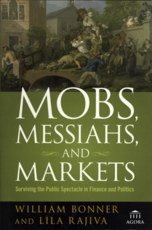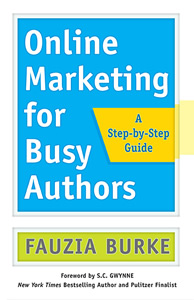 Mobs, Messiahs, and Markets: Surviving the Public Spectacle in Finance and Politics
Mobs, Messiahs, and Markets: Surviving the Public Spectacle in Finance and Politics
Wiley, August 2007
Collectively, people think and act in ways that are different from how they think and act as individuals. Understanding these differences, says William (Bill) Bonner -- a longtime maverick observer of the financial world and the vagaries of the investing public -- is vital to preserving your wealth and personal dignity. From the witch hunts of the early modern world to the war on terror, from the dot-com mania to the real estate bubble, people have always been caught up in frauds, conceits, and wild guesses -- often with devastating results. In Mobs, Messiahs, and Markets, Bonner and coauthor Lila Rajiva show groupthink at work in an improbable array of instances throughout history and reveal why swimming against the current pays. They explain why people so often abandon good sense and good behavior to "follow the crowd" and show you how to avoid getting caught up in the public spectacles around you.
If an investor merely recognizes the way mob sentiment works, the authors point out, he is far ahead of most others. Ordinary people, for example, turn over billions of dollars' worth of their hard-earned money to brokers and mutual fund managers every day -- immediate, tangible, personal money -- believing that strangers will give them back even more. Whatever would make them think so?
Mobs, Messiahs, and Markets demonstrates that investors are in fact caught between a rock and a soft place -- between the private world they can understand and master and the misleading public spectacle of the markets. "The further away you get from your investments, and the less you suffer the consequences if they go bad, the worse your performance will be," say Bonner and Rajiva. "That's why 'collective' investments like index-linked funds, mutual funds, hedge funds, insurance funds, and pension funds are usually so bad. The investors are too far from the facts -- and the managers are too far from the consequences."
The authors' cautionary tale of the current bubble economy warns that the gush of credit let loose by Alan Greenspan is fraught with perils for the unwary -- but their thoughtful and always entertaining approach also offers some sound investing principals for avoiding the pitfalls of the public spectacle, thinking for yourself, and protecting your money, your sanity, and your soul.
hardcover | ISBN: 9780470112328 | Publication Date: August 2007
Reviews:
"This books strikes at the center of conventional wisdom. It is brilliant, deep, and fun to read."
--Nicholas Nassim Taleb, author of the legendary investment classic, Fooled by Randomness, and the recent bestseller on probability, The Black Swan
"As fun to read as it is thought-provoking and filled with fascinating
insights into how the world really works. It will teach you a proper
skepticism as to what we are told by the mainstream media."
--John Mauldin, President, Millennium Wave Advisors, LLC author of the New York Times bestsellers, Bull's Eye Investing and Just One Thing
"Learn about Fed bubbles and make Ben Bernanke unhappy: read this book."
--Lew Rockwell, President, the Ludwig von Mises Institute
"A cock-eyed, frolicking hell of a read."
--Dr. Mark Skousen, Professor of Economics and Editor, The Worldly Philosophers
"I laughed aloud, I learned, and I was even offended. Behind the crafty
writing, the authors share the deeper secrets of investing and push us
to question what we believe. 'Think for yourself!' this book screams."
--Steve Sjuggerud, Editor, True Wealth, one of the world's most widely read investment letters
"Mobs, Messiahs, and Markets is
one of the funniest and most entertaining books I have ever read. A classic for the student of the current period in history. If I had to name just one books investors should read, this is the one I would select."
--Dr. Marc Faber, world-famous contrarian guru, author of the bestseller, Tomorrow's Gold, and Editor of the maverick Gloom Boom & Doom Report
"Entertainingly and irreverently investigates the 'do-gooders' an 'world-improvers' who stir up mass hysteria, unjustified wars, and financial crises, while at the same time it warns readers how to better
protect themselves and their pocketbooks."
--Ron Paul, Congressman and Presidential candidate





